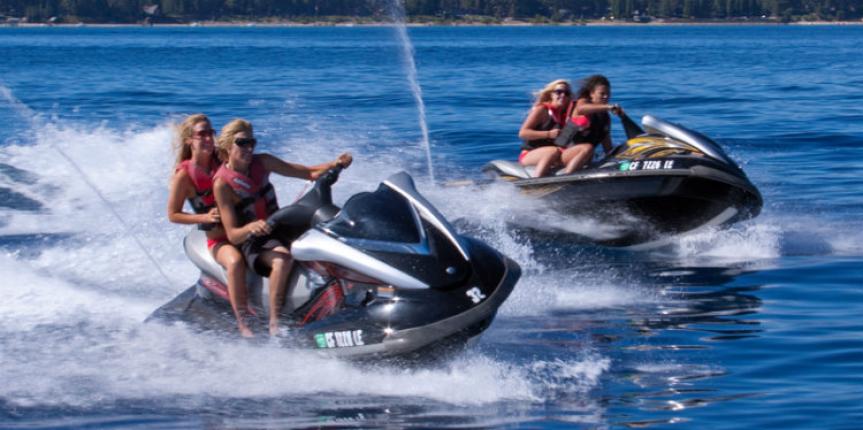Spring Break: Boating and Jet Ski Safety
Now that March has already rolled around, residents in Arizona (and throughout the country) are gearing up for Spring. Many avid warm weather water junkies will jump head-first into boating activities as soon as soon as given the chance.
That first opportunity is right around the corner, with Spring Break looming on the schedule for many schools and universities. Boating and jet skiing is a popular activity for many Spring Breakers--particularly college student and young adults. Unfortunately, with boating always comes the risk of preventable accidents and injuries. Every year people throughout the state are hurt in different accidents on the water. According to the North American Safe Boating Campaign, in recent years there have been over 3,300 boating-related casualties annually. The majority of those accidents occur on traditional motorboats and many more strike on personal watercraft and jet-skis. Drowning and trauma caused by collisions are the two most common injuries affecting water travelers.
5 Simple Safe Boating Tips to ALWAYS Remember
This year, make a commitment to not become a statistic. The vast majority of boating and jet ski accidents are entirely preventable. Before getting on the water and enjoying the sun, take a moment to review some basic boating safety measures.
- 1) Respect the Dangers of Alcohol - Alcohol plays a central role in many boating accidents. Starting with Spring Break parties and continuing throughout the season, tossing back beers, cocktails, and other spirits is a common part of many water gatherings. However, it is absolutely critical that travelers understand the risks of over-indulging on the water. In fact, state laws treat BUI (Boating Under the Influence) just as they do drunk driving. In other words, never pilot of vessel while drunk and avoid travelers with those who have had too much.
- 2. Life Jackets - Just Wear Them - Sometimes the simplest tips are the most important. Drowning injuries and death are the single most common water-accident. When life jackets are worn, the risk of drowning decreases exponentially. This is particularly true for younger boaters. Do not take unnecessary risks--wear your life jacket at all times.
- 3) Trained Drivers Only - Just as you wouldn’t want an unlicensed driver speeding down an interstate, no one should be captain a boat or water vessel without proper training. Some studies suggest that driver error is responsible for three out of every four boating accidents. Ensure that experienced operators are manning your vessels at all times.
- 4) Ensure Equipment Safety - No matter how careful you are on the water, if your equipment is faulty, then accidents can strike. Before going out it is smart to conduct a “Vessel Check.” This is to ensure your boat or jet ski is in proper working order and that appropriate safety equipment is present. It is not an exaggeration that even a simple pre-trip check can be the difference between life and death.
- 5) Know When to Stop - Certain boating environments are more dangerous than others. For example, if the weather takes a turn for the worse and the water seems unmanageable, it is better to play it safe. Similarly, if a particular area seems overcrowded, it may be better to avoid skiing, tubing, or using jetskis where collision is high.






